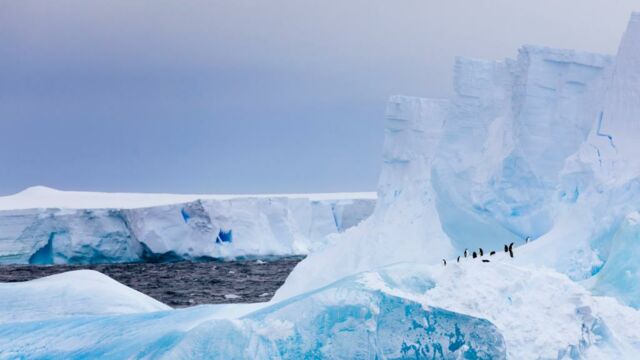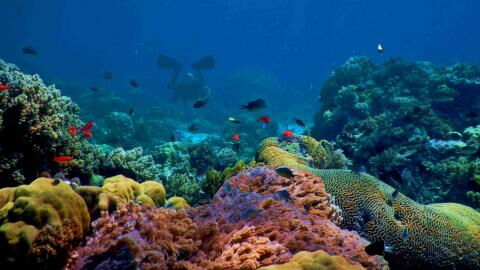Researchers working on the direct consequences of climate change have visited the Ross Sea in Antarctica. With 98% of its surface covered by ice averaging two kilometres thick, Antarctica is one of the best places to study the direct consequences of climate change. And in the course of this research, the scientist and her colleagues made an incredible discovery, as Futura Sciences tells us.
Discover our latest podcast
Dr Denise Fernandez said
We want to understand the mechanics of the Ross Sea and how it might change under different climate scenarios.
An incredible discovery
While viewing satellite images of the ice pack, a groove in the ice caught their attention.
Oceanographer Professor Craig Stevens said:
We suspected it might be an estuary under the ice,
And he was not wrong. Indeed, the existence of a hidden circulation of fresh water and secret rivers under the Antarctic ice caps had long been suspected but never proven.
To find out for sure, the researchers melted the ice 500 metres deep and made an incredible discovery: hundreds of small amphipods were circulating in the river under the ice cap.
Prof. Stevens added:
In a normal experiment, seeing one of these things would make you jump for joy. There is clearly an important ecosystem process going on here, which we will be doing more research on by analysing water samples to test for nutrients,

‘Big changes are underway’
The explanation behind these discoveries is still missing but one thing is certain; Prof. Stevens concludes:
It changes our current understanding and models of these environments. It will take time to understand what this means for melting processes.
But what is clear is that big changes are underway, especially if we don't work together to change our greenhouse gas emissions,
This article has been translated from Gentside FR.
Read more:
⋙ Climate change: 40 years' worth of Antarctic glaciers gone in seconds, find out why
⋙ Climate change: A tiny marine predator that could help fight climate change has been discovered
⋙ This popular condiment is now in short supply due to climate change and the war in Ukraine















